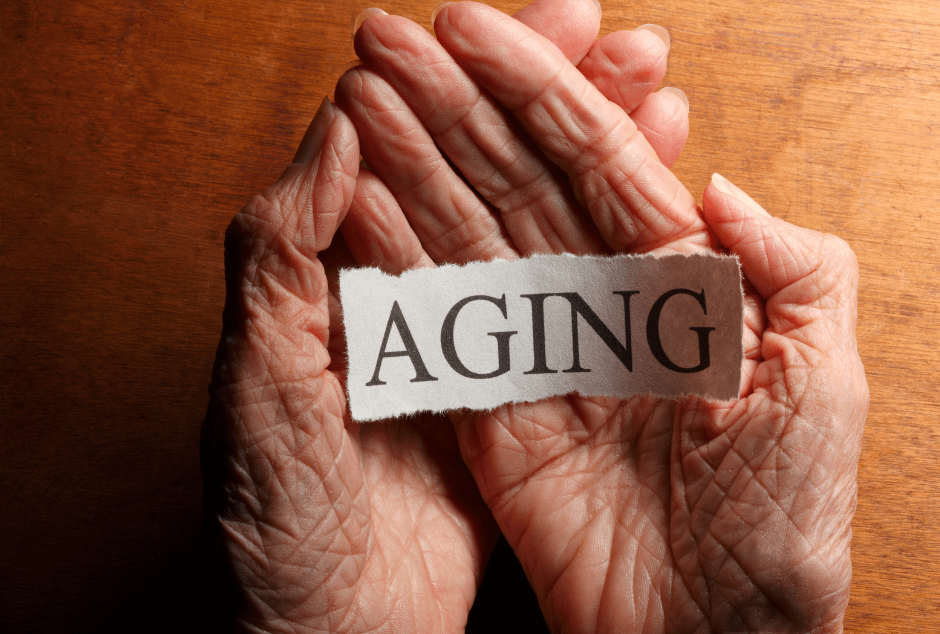As you enter your 60s, you may start noticing changes that seem to accelerate the aging process. Recent research published in Nature Aging reveals that much of aging occurs in “bursts,” with one major shift happening around age 60. This decade brings significant changes to your body’s immune system, heart, and muscles, and these shifts can influence how you feel and function.

At Parenting Our Parents (POP), we aim to keep caregivers informed about the aging process and how it can impact both their loved ones and themselves. Understanding these changes can help you take proactive steps to maintain health and independence.
Here are three key reasons aging accelerates in your 60s:
1. The Immune System Declines #
As you enter your 60s, your immune system begins to experience a rapid decline, a process known as immunosenescence. This makes you more vulnerable to illnesses such as cardiovascular disease, cancer, and infections. Your immune system’s ability to fight off new viruses also weakens, which is why vaccines may be less effective in older adults.
Dr. Michael Snyder, senior author of the study and a genetics professor at Stanford Medicine, emphasizes the importance of your immune system in preventing serious health issues. “Your immune system is absolutely critical for preventing cancer, cardiovascular disease, basically everything,” he explains.
For caregivers, this decline means it’s more important than ever to help older loved ones take preventive health measures, such as staying up-to-date with vaccines and practicing good hygiene to avoid infections.
2. Heart Health Deteriorates #
By age 60, your blood vessels and arteries often begin to stiffen, forcing your heart to work harder to pump blood. While your resting heart rate may not change much, your heart’s ability to keep up during physical activity or stress diminishes. This decline increases the risk of high blood pressure and other cardiovascular issues.
Dr. Kenneth Koncilja, a geriatrician at Cleveland Clinic, highlights the importance of building heart resilience through regular exercise and a healthy diet. He notes that those who have taken care of their cardiovascular system earlier in life are less likely to experience severe symptoms from heart-related problems.
For caregivers, encouraging older loved ones to engage in light physical activity and maintain a balanced diet can significantly improve heart health and reduce the risk of heart disease.
3. Muscle Mass Declines #
After peaking in your 30s, muscle mass and strength gradually decline, but the loss accelerates after age 60. This condition, known as sarcopenia, is one of the most critical factors contributing to the loss of independence as people age. Reduced muscle strength can make it harder to perform everyday tasks and maintain mobility.
Dr. Koncilja stresses that while cardiovascular exercise is important, strength training is essential for maintaining muscle mass as we age. “I have patients who are exercising and working out in their 80s and 90s who have less chronic disease and are more independent,” he explains. Regular strength training can even slow the progression of memory problems and dementia.
For caregivers, helping loved ones incorporate strength training exercises can make a significant difference in their ability to stay active and independent as they age.
The Key to Aging Well: Stay Active #
Regardless of age, maintaining cognitive, physical, and social activity is essential for aging well. Dr. Angela Catic, associate professor of geriatrics at Baylor College of Medicine, emphasizes that while we may not yet be able to control all the metabolic changes that come with aging, staying active in all areas of life can lead to longer, healthier lives.
At POP, we encourage caregivers to support their loved ones in staying physically active, socially engaged, and mentally stimulated. Small efforts, such as regular walks, engaging in hobbies, or participating in social activities, can make a significant impact on aging gracefully.
Aging may bring challenges, but with awareness and proactive steps, you and your loved ones can navigate this stage of life with health and resilience.




